Graham Downs's Blog, page 4
October 28, 2019
Authors Re-Reading Their Old Work
I’ve been re-reading some of my old fiction lately, and like many authors, I’ve been cringing. Because the writing is terrible.
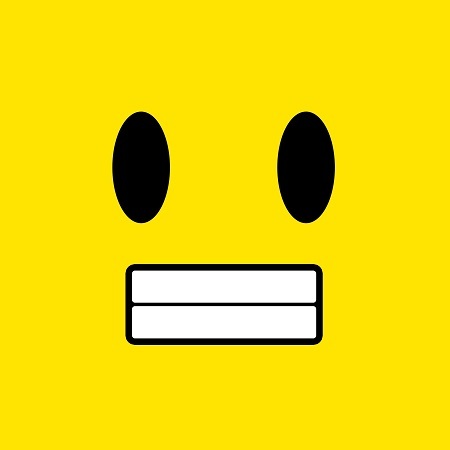
The stories are still good, but the grammar sucks, there are way too many commas, I re-use the same words over and over again, there’s too much passive voice....
Basically, it reads like an amateur wrote it. And considering I wrote some of it seven years ago, that’s exactly what I was.
So what sparked this sudden interest in my old work, you ask? Well, (you heard it here first) I’m planning to give one of them away for Halloween on Thursday.
If you know my work, you can probably guess which one I’m talking about, but the thing is, I’m expecting the vast majority of people who pick it up to have never heard of me before. And since the purpose of the giveaway will be to convince people to a) review it, and b) buy my other stuff, it needs to be the best it can be.
So I’m thinking of re-editing it. I’ll be keeping the story intact, but I’ll be changing some grammar, language, and style.
As a reader, do you think that’s a good idea?
Do you appreciate it when other authors do this, and do you even notice?
The problem is that, if I did it, it would be for the ebook only. At least at first, because re-issuing print books is expensive....
But that shouldn’t be a problem, right? I mean, should it?
Oh, and that cover image? That's me, cringing as I read those old stories. I can't believe anybody actually paid money to read them back in the day. And didn't even ask for a refund!

The stories are still good, but the grammar sucks, there are way too many commas, I re-use the same words over and over again, there’s too much passive voice....
Basically, it reads like an amateur wrote it. And considering I wrote some of it seven years ago, that’s exactly what I was.
So what sparked this sudden interest in my old work, you ask? Well, (you heard it here first) I’m planning to give one of them away for Halloween on Thursday.
If you know my work, you can probably guess which one I’m talking about, but the thing is, I’m expecting the vast majority of people who pick it up to have never heard of me before. And since the purpose of the giveaway will be to convince people to a) review it, and b) buy my other stuff, it needs to be the best it can be.
So I’m thinking of re-editing it. I’ll be keeping the story intact, but I’ll be changing some grammar, language, and style.
As a reader, do you think that’s a good idea?
Do you appreciate it when other authors do this, and do you even notice?
The problem is that, if I did it, it would be for the ebook only. At least at first, because re-issuing print books is expensive....
But that shouldn’t be a problem, right? I mean, should it?
Oh, and that cover image? That's me, cringing as I read those old stories. I can't believe anybody actually paid money to read them back in the day. And didn't even ask for a refund!
Published on October 28, 2019 22:09
October 21, 2019
Reading Multiple Books at Once
As you'll remember, a friend challenged me last week to read a chick-lit book. Which I did, but I already had some books lined up to read and I didn't want to set them aside. So I decided to further challenge myself to read my challenge book at the same time as the others.
This isn't something I normally do, but I know some people in the group I told you about who do it all the time, so I asked them for some advice. How do you do it? How do you keep track? How do you decide which book you will read at any point in time?
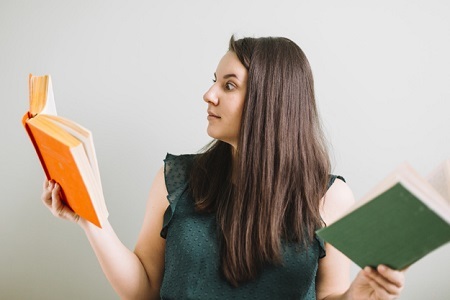
I got a few different answers:
Some people like to consume their books in different formats. They'll have one paper book, one ebook, and one audiobook on the go, and then it's just a question of which one they want to open at any point.
Or perhaps they won't take their paper book with them when they go out, so while waiting in a queue at the bank, the ebook's the way to go. Sitting in traffic, it'll be the audiobook. And when they're home, they'll read the paper one.
I understand the attraction to that, but it wouldn't work for me, for two reasons. First, on account of my eyesight, I seldom read paper books, so those are out. And I dislike audiobooks because I struggle to pay attention to something while I'm busy with something else.
My second problem with the above is I'm seldom anywhere but at home. I don't get out much, largely because of the aforementioned visual disability. And when I do, I'm always with other people and engaging with them, so there wouldn't be time to read.
Some people read different books depending on their activity. This is like the above, except it is irrelevant of format; they'll read one book while they're eating lunch, another while sitting on the toilet, another while waiting to pick their daughter up from netball practice, for example.
This also sounds reasonable, but I just don't get that many opportunities to read. This may be too much information, but I read on the toilet, and I read for a while after work, while waiting for my wife to get home. And that's mostly it.
I could read one book on one day, and another on the next, but I'm obsessed with updating my reading progress on Goodreads every day (although I don't always manage), and I think I'd feel bad if I updated my progress for only one book at a time.
What I ended up doing was reading my regular book on the toilet, and, because I wanted to get the challenge book out of the way as quickly as possible, reading that one in the afternoons. Still, every time I picked up one book, I felt guilty because I wasn't reading the other one.
I think reading speed also has a part to play. I read a mid-length novel (say 350-400 pages) in around a week. Which I used to think was fast, but I also know that some people on the group I mentioned read a lot faster than that. It's not out of the question for them to read a book of that length in a day! And that's not because their lives are less busy or they have more time to read; they just read that fast.
I suppose if I was reading a 350-400 page novel every day, it'd be way less of an issue for me. As it stands, I found it difficult.
How about you? Do you read multiple books at the same time? Do you have any of the same hang-ups as me, and if so, how do you manage them?
Cover image: Vintage photo created by freepik - www.freepik.com
This isn't something I normally do, but I know some people in the group I told you about who do it all the time, so I asked them for some advice. How do you do it? How do you keep track? How do you decide which book you will read at any point in time?

I got a few different answers:
Some people like to consume their books in different formats. They'll have one paper book, one ebook, and one audiobook on the go, and then it's just a question of which one they want to open at any point.
Or perhaps they won't take their paper book with them when they go out, so while waiting in a queue at the bank, the ebook's the way to go. Sitting in traffic, it'll be the audiobook. And when they're home, they'll read the paper one.
I understand the attraction to that, but it wouldn't work for me, for two reasons. First, on account of my eyesight, I seldom read paper books, so those are out. And I dislike audiobooks because I struggle to pay attention to something while I'm busy with something else.
My second problem with the above is I'm seldom anywhere but at home. I don't get out much, largely because of the aforementioned visual disability. And when I do, I'm always with other people and engaging with them, so there wouldn't be time to read.
Some people read different books depending on their activity. This is like the above, except it is irrelevant of format; they'll read one book while they're eating lunch, another while sitting on the toilet, another while waiting to pick their daughter up from netball practice, for example.
This also sounds reasonable, but I just don't get that many opportunities to read. This may be too much information, but I read on the toilet, and I read for a while after work, while waiting for my wife to get home. And that's mostly it.
I could read one book on one day, and another on the next, but I'm obsessed with updating my reading progress on Goodreads every day (although I don't always manage), and I think I'd feel bad if I updated my progress for only one book at a time.
What I ended up doing was reading my regular book on the toilet, and, because I wanted to get the challenge book out of the way as quickly as possible, reading that one in the afternoons. Still, every time I picked up one book, I felt guilty because I wasn't reading the other one.
I think reading speed also has a part to play. I read a mid-length novel (say 350-400 pages) in around a week. Which I used to think was fast, but I also know that some people on the group I mentioned read a lot faster than that. It's not out of the question for them to read a book of that length in a day! And that's not because their lives are less busy or they have more time to read; they just read that fast.
I suppose if I was reading a 350-400 page novel every day, it'd be way less of an issue for me. As it stands, I found it difficult.
How about you? Do you read multiple books at the same time? Do you have any of the same hang-ups as me, and if so, how do you manage them?
Cover image: Vintage photo created by freepik - www.freepik.com
Published on October 21, 2019 21:45
October 14, 2019
Reading Outside Your Comfort Zone (Love You, Love You Not by Jo Watson)
Have you ever challenged yourself to read something that you would never normally read?
Let me tell you a story: in my day job as a Software Developer, we (like many development companies) work to two-weekly "sprints", and when planning each sprint, we allocate a certain number of work items that we believe we can achieve. We call these work items "stories", because they describe a particular requirement that a particular kind of user has. To each of these stories, we assign an arbitrary "point value" to, as an indication of how easy or difficult we think it's going to be to complete, and we have a total cap on the number of points we can commit to in a sprint.
That's a very abridged description of the Scrum process, which is used by thousands of software development companies today. If you want to know more about how it works, just Google—there are zillions of articles about it.
Anyway, last sprint, as a bit of team-building fun, we decided that each of us would assign a non-work-related story to one other member of the team. This would be something fun that we believed the person could achieve. One of my colleagues, who knows I'm an avid reader, challenged me to ask for recommendations in a Facebook group for readers (which we both belong to), for a book either in the "Chick Lit" category, or one about South African politics. I accepted her challenge.
As she requested, I asked on the group, and I got a ton of recommendations back. The book I decided on was Love You, Love You Not by Jo Watson.
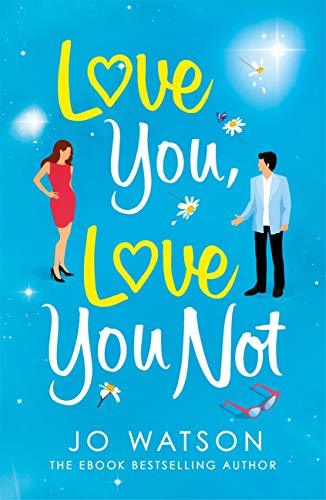
I was a bit trepidacious, but also really exited, to start. I've been reading it ever since (in between my other reading commitments), and I have to say, I'm thoroughly enjoying it. More than I thought I would, in fact. It's super eye-opening to get a glimpse into the kind of book that many, many women read all the time.
This post isn't a place to post all my thoughts about this book specifically (I'll write a review of that when I'm done, and put it on Goodreads), but rather to encourage you, dear reader, to try something new. Do something you've never done before, and never thought you'd do. Do something that scares you.
How about you? Do you stick to one single genre, or do you like to mix it up every once in a while? For me, I think I'm going to be mixing it up more often in future, because this is a really freeing experience!
Let me tell you a story: in my day job as a Software Developer, we (like many development companies) work to two-weekly "sprints", and when planning each sprint, we allocate a certain number of work items that we believe we can achieve. We call these work items "stories", because they describe a particular requirement that a particular kind of user has. To each of these stories, we assign an arbitrary "point value" to, as an indication of how easy or difficult we think it's going to be to complete, and we have a total cap on the number of points we can commit to in a sprint.
That's a very abridged description of the Scrum process, which is used by thousands of software development companies today. If you want to know more about how it works, just Google—there are zillions of articles about it.
Anyway, last sprint, as a bit of team-building fun, we decided that each of us would assign a non-work-related story to one other member of the team. This would be something fun that we believed the person could achieve. One of my colleagues, who knows I'm an avid reader, challenged me to ask for recommendations in a Facebook group for readers (which we both belong to), for a book either in the "Chick Lit" category, or one about South African politics. I accepted her challenge.
As she requested, I asked on the group, and I got a ton of recommendations back. The book I decided on was Love You, Love You Not by Jo Watson.

I was a bit trepidacious, but also really exited, to start. I've been reading it ever since (in between my other reading commitments), and I have to say, I'm thoroughly enjoying it. More than I thought I would, in fact. It's super eye-opening to get a glimpse into the kind of book that many, many women read all the time.
This post isn't a place to post all my thoughts about this book specifically (I'll write a review of that when I'm done, and put it on Goodreads), but rather to encourage you, dear reader, to try something new. Do something you've never done before, and never thought you'd do. Do something that scares you.
How about you? Do you stick to one single genre, or do you like to mix it up every once in a while? For me, I think I'm going to be mixing it up more often in future, because this is a really freeing experience!
Published on October 14, 2019 21:26
October 7, 2019
Journaling for Authors

First off, apologies for not blogging last week. My Internet connection was down because another fibre company was digging in the street outside my house, and they ended up damaging my cable.
A common piece of advice given to writers is to keep a journal or diary. And to be honest, it's something I've tried a few times in my life. It never lasts more than a few days, but I think that's because:
I've always tried to force myself to write in it every day, and I get very despondent when I miss a day, orWhen I do miss a couple of days and want to get back in it, I try to make myself record everything that's happened since my last entry, but there's no way I can fit it all in.Eventually, I resigned myself to the fact that journaling's not for me.
But lately, I've been struggling with my writing. I've got loads of different story ideas floating around in my head, but none of them is any more than a glimmer. Little glimpes of story strands, but as soon as I try to grab onto one and plan out where it's likely to go, I got nothing.
A couple of weeks ago, I figured I'd start writing down some things in a journal. Just basic stuff, like my dreams (when I remember them), random thoughts and snippets of writing, and stuff that's happened to me and how I feel about it.
It's slow going; as of the time of this writing, I think I have maybe three entries. But I think it's already starting to bear fruit, because my thoughts are becoming a bit more coherent, and I think there might just be one complete story in there, waiting to be told.
And you know what, if I miss a couple of days between entries, I give myself permission to leave huge gaps in the "narrative"—after all, it's only ever going to be read by me. Whether it's been a day, a week, or a month since I last wrote in it, I'm going to write what I feel is important and nothing else. That's harder than you might think, for the completionist in me. But wish me luck!
Oh, and of course this isn't a physical paper book! No way, nuh-uh! I'm way too private a person for that. No, it's a Scrivener doc on my computer called "Journal"; do you really think I'm going to leave a physical book lying around where some random person might pick it up and read it? These are some of my deepest, darkest, most private thoughts, here. Sheesh.
What do you think? Whether you're a writer or not, do you keep a journal or diary? Do you think it's a good idea for a writer to do it?
Published on October 07, 2019 21:45
September 23, 2019
I'm Abandoning Plain Text Emails
I've spoken about this a few times, and I think it's probably something I've been putting off for a while, but it's finally happening: from my September 2019 email newsletter, I'm abandoning Plain Text as an option.
For personal emails I send, I will still prefer Plain Text unless it's really necessary to include images or custom formatting (the emails are smaller, take less bandwidth to send, less disk space to store, and are less distracting and easier to read), but I don't think it's practical for marketing emails from a brand to specifically support plain text.
Therefore, from now on, readers who have their email clients set to display emails in Plain Text by default will receive the following text when they open my newsletter:
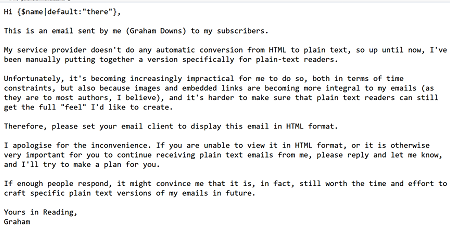
The text of the email is as follows:
What about you? Do you prefer to read emails in Plain Text? If you subscribe to my newsletters, do you think you'll ever see the above message?
This makes my heart sore, but I feel it has to be done. And now's the right time to do it.
For personal emails I send, I will still prefer Plain Text unless it's really necessary to include images or custom formatting (the emails are smaller, take less bandwidth to send, less disk space to store, and are less distracting and easier to read), but I don't think it's practical for marketing emails from a brand to specifically support plain text.
Therefore, from now on, readers who have their email clients set to display emails in Plain Text by default will receive the following text when they open my newsletter:

The text of the email is as follows:
Hi {$name|default:"there"},
This is an email sent by me (Graham Downs) to my subscribers.
My service provider doesn't do any automatic conversion from HTML to plain text, so up until now, I've been manually putting together a version specifically for plain-text readers.
Unfortunately, it's becoming increasingly impractical for me to do so, both in terms of time constraints, but also because images and embedded links are becoming more integral to my emails (as they are to most authors, I believe), and it's harder to make sure that plain text readers can still get the full "feel" I'd like to create.
Therefore, please set your email client to display this email in HTML format.
I apologise for the inconvenience. If you are unable to view it in HTML format, or it is otherwise very important for you to continue receiving plain text emails from me, please reply and let me know, and I'll try to make a plan for you.
If enough people respond, it might convince me that it is, in fact, still worth the time and effort to craft specific plain text versions of my emails in future.
Yours in Reading,
Graham
What about you? Do you prefer to read emails in Plain Text? If you subscribe to my newsletters, do you think you'll ever see the above message?
This makes my heart sore, but I feel it has to be done. And now's the right time to do it.
Published on September 23, 2019 22:05
September 16, 2019
Why I Wouldn't Buy a Dedicated Ereading Device
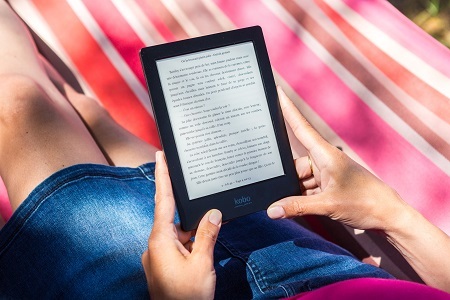
Earlier this month, ebook retailer Kobo announced a brand new, waterproof ereading device.
It looks really cool and all, but you know, it got me thinking. In this day and age, with competition in the ebook space so fierce, I don't think I would ever buy a dedicated ereading device. You don't want to be locked into any one retailer, and effectively, that's what a dedicated ereader does because you can't easily read books on it, that you bought from other stores.
I'd much rather say, go out and buy a tablet with the biggest and highest quality screen you can afford, and install all the apps. And if waterproof is really that important to you, there are rugged tablets available, specifically for that purpose (look at Rugged SA in South Africa, for example).
Sure, dedicated ereaders often have stunning screens, specifically designed to let you read in comfort for extended periods of time. Or they can be much lighter than tablets—although I personally prefer to hold something weighty anyway.
But think of the things you give up:
I want to be able to say, for any particular book, "Hey, this book's cheaper at Kobo." And buy it on Kobo and open the Kobo app on my tablet to read it.
Or for a different book, "Hey, this book's cheaper at Amazon." And buy it on Amazon and open the Kindle app on my tablet to read it.
Or for a different book, "Hey, this book's available on Scribd." And click Save For Later on Scribd and read it on my tablet at no extra charge.
And what if you have a Kobo ereader, but the book you want is only available on Amazon, or vice versa?
Sure, you could use Calibre and similar software to download the book to your PC, convert it to a format your ereader can support, and copy it over. But if the book has DRM applied (as most traditionally published books do), you'd have to strip that off first.
That's a lot of effort for most people. It's also almost certainly against the terms of service of the store you bought it from... and is possibly downright illegal if you have to strip the DRM first.
What do you think? Am I being unreasonable? Do you shop around for ebooks, or do you just buy them from your regular store without giving it a second thought?
Published on September 16, 2019 19:23
September 9, 2019
National Fight Procrastination Day
Friday (6 September) was National Fight Procrastination Day in the US. Did you know?
Well, even if you didn't, I'll bet there was at least one task that you were supposed to do on Friday, right? A task that you procrastinated and procrastinated over, and it possibly didn't get done?
You know what I was supposed to do last Friday? Write this blog post. :-)
See, I'm participating in a big ebook bargain sale this week, and you can get loads of free and cheap Science Fiction and Fantasy ebooks, for this week only.
Click on the banner below to find out more:

I hope you find something you like. Have a wonderful week!
By the way, if you buy something, why not post a comment and let us know what you got? Let's share the love, and help your fellow readers find some great bargains.
Well, even if you didn't, I'll bet there was at least one task that you were supposed to do on Friday, right? A task that you procrastinated and procrastinated over, and it possibly didn't get done?
You know what I was supposed to do last Friday? Write this blog post. :-)
See, I'm participating in a big ebook bargain sale this week, and you can get loads of free and cheap Science Fiction and Fantasy ebooks, for this week only.
Click on the banner below to find out more:

I hope you find something you like. Have a wonderful week!
By the way, if you buy something, why not post a comment and let us know what you got? Let's share the love, and help your fellow readers find some great bargains.
Published on September 09, 2019 22:01
September 2, 2019
Getting Your Favourite Magazines Digitally
Those who know me, know that I'm a huge fan of the Unlimited Reading platform, Scribd. The thought of being able to read as many books as I like for only $8.99 is just too good to pass up!
Up to now, though, I've been using it exclusively for ebooks, but just recently, I've discovered a really cool part of their platform: Magazines.
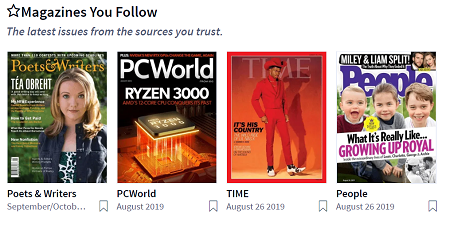
I must be honest with you: it's been a long time since I've read a magazine. When I was still living with my parents (wow, that was a long time ago, now), I remember occasionally buying copies of PC World or Time when I saw them in the shops. Of course, they were imports here in South Africa, so they were really expensive.
Scribd has contracts with lots of magazines, so you can "follow" them, and they deliver the latest issue, straight into your app. Click on an issue, and you're presented with a list of articles from that issue, and you can click on one to read it.
Tres cool, no?
Do you still read magazines? If so, do you still buy paper-based ones, or have you switched to digital? Feel free to let me know in the comments below.
Oh and incidentally, if you'd like 60 free days to try out Scribd (instead of the usual 30 that most people get), click here to sign up.
And once you've completed the sign-up process, search for my books. They're all there.
Up to now, though, I've been using it exclusively for ebooks, but just recently, I've discovered a really cool part of their platform: Magazines.

I must be honest with you: it's been a long time since I've read a magazine. When I was still living with my parents (wow, that was a long time ago, now), I remember occasionally buying copies of PC World or Time when I saw them in the shops. Of course, they were imports here in South Africa, so they were really expensive.
Scribd has contracts with lots of magazines, so you can "follow" them, and they deliver the latest issue, straight into your app. Click on an issue, and you're presented with a list of articles from that issue, and you can click on one to read it.
Tres cool, no?
Do you still read magazines? If so, do you still buy paper-based ones, or have you switched to digital? Feel free to let me know in the comments below.
Oh and incidentally, if you'd like 60 free days to try out Scribd (instead of the usual 30 that most people get), click here to sign up.
And once you've completed the sign-up process, search for my books. They're all there.
Published on September 02, 2019 22:00
August 26, 2019
Buying Ebooks at Exclusive Books
Before I begin, let me clarify what I mean by the above headline. I don't just mean using the Exclusive Books website to buy ebooks — although that's possible, too. I mean, standing in Exclusive Books, browsing their selection, and then whipping out your phone and actually buying ebooks!
I was having this conversation with a friend of mine the other day. Like me, she's more-or-less moved on to reading exclusively ebooks these days. But she still enjoys browsing Exclusive Books (which is our biggest chain bookstore in South Africa). She never buys books there, though, because she finds paper-based books to be way too expensive, and ebooks just way more convenient. So she feels guilty because she'll pick up a book at Exclusive Books, flip through it, then go home and buy the ebook version of that book, from a different retailer.
I know she's not the only person who does this, so I shared with her this dream I had, way back when I first started reading ebooks exclusively. It's a dream where anyone could walk into a brick-and-mortar bookstore, and buy an ebook. Without feeling in the least bit guilty.
Then I got to thinking. For Exclusive Books, in particular, this wouldn't be too difficult to achieve, would it?
Bear with me now. Exclusive Books already has an agreement with Kobo to provide ebooks. There's an option on the menu of their website, labelled "EBOOKS".
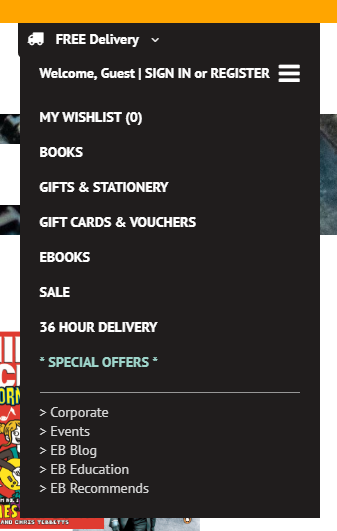
If you click it, you get redirected to the Kobo store, with Exclusive Books' affiliate code already filled in, meaning they get a commission when you buy ebooks after clicking that link.
So, my dear friends, how hard do you think it would be to do the following?
Every book on Exclusive Books' shelves, that has an ebook available on Kobo, has a sticker on the back.That sticker contains a QR code, and an instruction to "Scan this code to buy the ebook".Scanning the code on your phone takes you directly to the relevent ebook on Kobo, with Exclusive Books' affiliate code built in.Since some people might struggle with this, make sure that every store has knowledgable staff on hand to help customers create an account at Kobo so they can buy and read ebooks.Have I just hit on a goldmine here or what? I mean, win-win-win, right? Exclusive Books earns money when their customers buy ebooks, but they still get the foot-traffic. People no longer feel guilty about browsing paper books at Exclusive Books and then buying ebooks instead. Kobo earns money. Authors and publishers earn money. And South African ebook buyers discover alternative places to buy ebooks, that they potentially never knew existed.
What do you think? Is there a downside?
I was having this conversation with a friend of mine the other day. Like me, she's more-or-less moved on to reading exclusively ebooks these days. But she still enjoys browsing Exclusive Books (which is our biggest chain bookstore in South Africa). She never buys books there, though, because she finds paper-based books to be way too expensive, and ebooks just way more convenient. So she feels guilty because she'll pick up a book at Exclusive Books, flip through it, then go home and buy the ebook version of that book, from a different retailer.
I know she's not the only person who does this, so I shared with her this dream I had, way back when I first started reading ebooks exclusively. It's a dream where anyone could walk into a brick-and-mortar bookstore, and buy an ebook. Without feeling in the least bit guilty.
Then I got to thinking. For Exclusive Books, in particular, this wouldn't be too difficult to achieve, would it?
Bear with me now. Exclusive Books already has an agreement with Kobo to provide ebooks. There's an option on the menu of their website, labelled "EBOOKS".

If you click it, you get redirected to the Kobo store, with Exclusive Books' affiliate code already filled in, meaning they get a commission when you buy ebooks after clicking that link.
So, my dear friends, how hard do you think it would be to do the following?
Every book on Exclusive Books' shelves, that has an ebook available on Kobo, has a sticker on the back.That sticker contains a QR code, and an instruction to "Scan this code to buy the ebook".Scanning the code on your phone takes you directly to the relevent ebook on Kobo, with Exclusive Books' affiliate code built in.Since some people might struggle with this, make sure that every store has knowledgable staff on hand to help customers create an account at Kobo so they can buy and read ebooks.Have I just hit on a goldmine here or what? I mean, win-win-win, right? Exclusive Books earns money when their customers buy ebooks, but they still get the foot-traffic. People no longer feel guilty about browsing paper books at Exclusive Books and then buying ebooks instead. Kobo earns money. Authors and publishers earn money. And South African ebook buyers discover alternative places to buy ebooks, that they potentially never knew existed.
What do you think? Is there a downside?
Published on August 26, 2019 21:47
August 19, 2019
Should Independent Authors Form Publishing Companies?
You know how, when you visit one of my book's pages at your favourite retailer, it lists my name as the publisher?
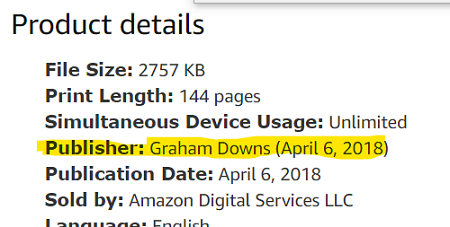
That's because I'm a self-published author; I am the publisher of my own books. That's pretty much the definition of self-publishing, right?
There is, however, a growing trend these days, for self-published authors to start their own publishing companies or imprints (whether by registering those businesses "officially" in their countries of origin, or in name only).
Many of these people say it makes their books appear more "professional" to potential book buyers, critics, etc. Or perhaps (if they've gone the "official" route), there are tax benefits to having a proper business.
Personally, unless you're also going to be publishing other people's books, I'm not a fan of this idea. I’m all about educating readers about self-published books and encouraging them to actively seek those books out. And it’s sometimes difficult to tell whether a book’s self-published or not if it has an imprint/publisher name different from the author’s… which I understand is one of the main reasons some authors want their own publisher in the first place; I just don’t agree that it should be so, is all.
Also, as an author, I didn’t choose to self-publish because I couldn’t get a trad deal. I never even tried for a trad deal, because my decision to self-publish was a deliberate, conscious, and carefully considered one. That makes me proud to be a self-published author, and I don’t want to hide that fact.
Of course, as I said above, there might be tax benefits to registering an actual company, but if you're going to do that, there's nothing stopping you from registering your own name ("Graham Downs CC" or even "G Downs" or something; don't try and hide behind a name that has no connection to your author persona).
Besides, it’s not too difficult to figure out that a book's self-published, either way: typically the only books published through that publisher are the author’s own. And once you've figured that out, it doesn't look so professional anymore, does it?
This is just my two cents. I'd love to know what you think. Is it a good idea for a self-published author to start their own publishing company? Why or why not?

That's because I'm a self-published author; I am the publisher of my own books. That's pretty much the definition of self-publishing, right?
There is, however, a growing trend these days, for self-published authors to start their own publishing companies or imprints (whether by registering those businesses "officially" in their countries of origin, or in name only).
Many of these people say it makes their books appear more "professional" to potential book buyers, critics, etc. Or perhaps (if they've gone the "official" route), there are tax benefits to having a proper business.
Personally, unless you're also going to be publishing other people's books, I'm not a fan of this idea. I’m all about educating readers about self-published books and encouraging them to actively seek those books out. And it’s sometimes difficult to tell whether a book’s self-published or not if it has an imprint/publisher name different from the author’s… which I understand is one of the main reasons some authors want their own publisher in the first place; I just don’t agree that it should be so, is all.
Also, as an author, I didn’t choose to self-publish because I couldn’t get a trad deal. I never even tried for a trad deal, because my decision to self-publish was a deliberate, conscious, and carefully considered one. That makes me proud to be a self-published author, and I don’t want to hide that fact.
Of course, as I said above, there might be tax benefits to registering an actual company, but if you're going to do that, there's nothing stopping you from registering your own name ("Graham Downs CC" or even "G Downs" or something; don't try and hide behind a name that has no connection to your author persona).
Besides, it’s not too difficult to figure out that a book's self-published, either way: typically the only books published through that publisher are the author’s own. And once you've figured that out, it doesn't look so professional anymore, does it?
This is just my two cents. I'd love to know what you think. Is it a good idea for a self-published author to start their own publishing company? Why or why not?
Published on August 19, 2019 22:07



